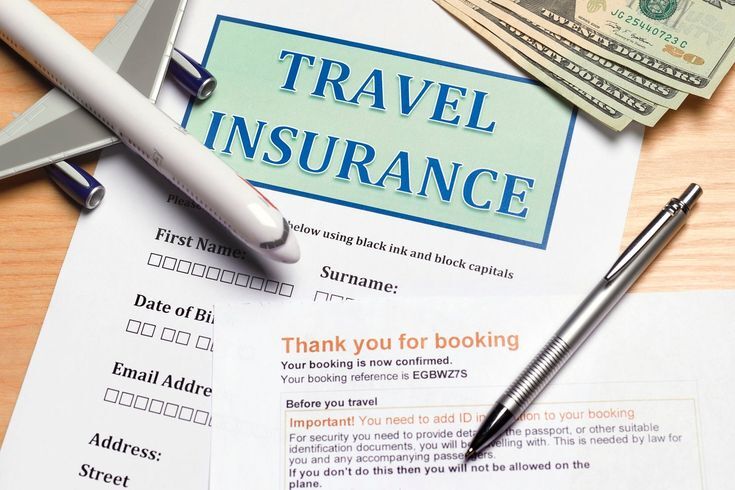
When planning a trip, the excitement of exploring new destinations often overshadows practical considerations like travel insurance. Many travelers wonder, “Is travel insurance necessary?” The short answer is yes. Here’s why travel insurance is an essential part of your travel planning and how it can save you from potential headaches and financial setbacks.
Understanding Travel Insurance
What is Travel Insurance?
Travel insurance is a safety net designed to protect you from unexpected events that can disrupt your travel plans. It typically covers a range of issues including trip cancellations, medical emergencies, lost luggage, and other unforeseen problems that can arise while you’re away from home.
Types of Travel Insurance Coverage
There are several types of coverage options within travel insurance policies:
- Trip Cancellation/Interruption Insurance: Covers non-refundable expenses if you need to cancel or cut short your trip due to unforeseen circumstances like illness, injury, or natural disasters.
- Medical Insurance: Provides coverage for medical emergencies, hospital visits, and sometimes dental care while traveling.
- Baggage and Personal Belongings Insurance: Protects against loss, theft, or damage to your luggage and personal items.
- Emergency Evacuation Insurance: Covers costs associated with emergency evacuation for medical reasons or due to unsafe conditions at your destination.
- Accidental Death and Dismemberment Insurance: Provides benefits to your beneficiaries if you suffer a fatal accident or serious injury while traveling.
Why Travel Insurance is Necessary

1. Medical Emergencies Can Be Costly
One of the primary reasons to invest in travel insurance is the potential for medical emergencies. Healthcare costs can be exorbitant in many parts of the world, and your regular health insurance might not cover you abroad. Travel insurance ensures that you receive necessary medical care without incurring significant out-of-pocket expenses.
2. Trip Cancellations and Interruptions
Life is unpredictable. Illness, family emergencies, or even work-related issues can force you to cancel or interrupt your trip. Travel insurance can reimburse you for prepaid, non-refundable expenses, so you don’t lose your investment in your dream vacation.
3. Lost or Delayed Baggage
Imagine arriving at your destination without your luggage. Travel insurance can cover the cost of replacing essential items if your bags are lost, stolen, or delayed. This coverage provides peace of mind, knowing you won’t have to bear the full cost of replacing your belongings.
4. Travel Delays and Missed Connections
Delays are an unfortunate reality of travel. Bad weather, mechanical issues, or other disruptions can lead to missed connections and additional expenses. Travel insurance can reimburse you for accommodation, meals, and transportation costs incurred due to significant delays.
5. Emergency Evacuations
In the event of a natural disaster, political unrest, or severe medical emergency, evacuation might be necessary. These situations can be extremely expensive and logistically challenging. Travel insurance covers the cost of emergency evacuation, ensuring your safety and well-being.
6. Peace of Mind
Perhaps the most significant benefit of travel insurance is peace of mind. Knowing that you’re protected against a wide range of potential issues allows you to relax and enjoy your trip without constant worry about what might go wrong.
Real-Life Scenarios Where Travel Insurance Proved Essential
Medical Emergency Abroad
A traveler in Thailand developed a severe illness requiring hospitalization. Without travel insurance, the cost of medical treatment and an emergency flight home would have been financially devastating. The travel insurance policy covered all medical expenses and arranged for a safe return home.
Trip Cancellation Due to Family Emergency

A couple planned a luxury cruise but had to cancel at the last minute due to a family emergency. Their travel insurance policy reimbursed them for the non-refundable cruise expenses, preventing a significant financial loss.
Lost Luggage on an International Flight
A business traveler’s luggage was lost en route to a crucial European meeting. The travel insurance policy covered the cost of purchasing necessary clothing and supplies, allowing the traveler to attend the meeting without added stress.
How to Choose the Right Travel Insurance
Assess Your Needs
Consider the specifics of your trip—destination, duration, activities, and personal health. Choose a policy that offers adequate coverage for the risks associated with your travel plans.
Compare Policies
Not all travel insurance policies are created equal. Compare different plans to find one that offers comprehensive coverage at a reasonable price. Pay attention to coverage limits, exclusions, and the claims process.
Read the Fine Print
Understanding the details of your policy is crucial. Make sure you know what is covered, any exclusions, and how to file a claim. Being informed will help you avoid surprises if you need to use your insurance.
Consider Multi-Trip Coverage
If you travel frequently, consider a multi-trip policy. These plans cover multiple trips within a specified period, often at a lower cost than purchasing separate policies for each trip.
Summary
So, is travel insurance necessary? Absolutely. It’s an essential investment that protects you from unexpected events that could ruin your trip and cause significant financial strain. Whether it’s for medical emergencies, trip cancellations, or lost luggage, travel insurance offers valuable protection and peace of mind. Don’t leave home without it!


